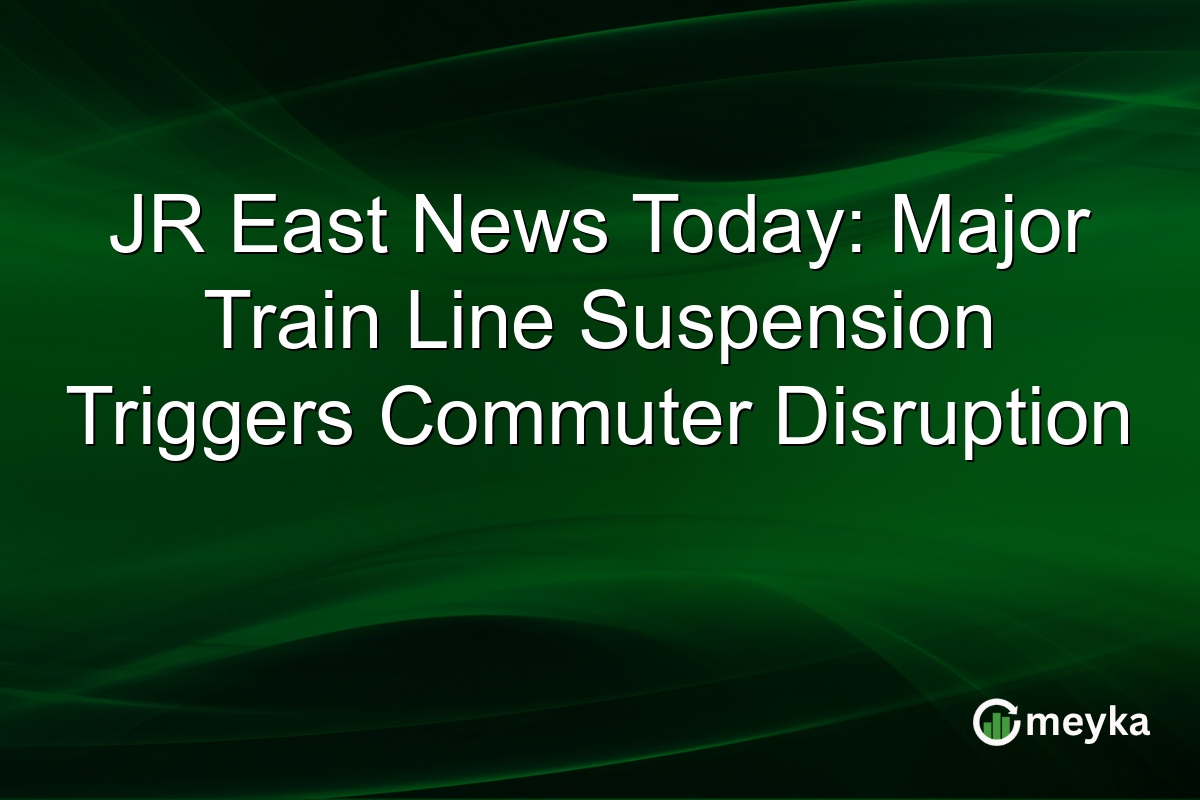JR East News Today: Major Train Line Suspension Triggers Commuter Disruption
This morning, JR East announced the suspension of a major train line in Tokyo, causing significant delays for thousands of commuters. The incident underscores vulnerabilities in Japan’s renowned public transport system, highlighting potential impacts on transit operators and government policies. As commuters faced chaos, investors are eyeing possible repercussions for infrastructure improvements and service providers.
Understanding the JR East Train Suspension
The morning announcement by JR East revealed a suspension on one of Tokyo’s busiest train lines, primarily due to technical issues. This led to severe overcrowding on alternative routes and sparked widespread frustration among commuters. Japan’s public transport, typically known for its punctuality, faced rare but substantial disruption today.
The complexities of the problem have caught the attention of city planners and officials. Addressing these vulnerabilities may require significant investment and innovation. You can explore more on this topic from Bloomberg’s coverage here.
For Japan, a country where over 20 million daily commuters rely on trains, such disruptions are particularly impactful. Authorities are under pressure to ensure robust contingency plans and infrastructure resilience to prevent similar outages.
Impacts on Government and Industry
The JR East train suspension has highlighted the need for government intervention. Increased scrutiny and potential regulatory changes are on the horizon to enhance the reliability of public transportation. The Japanese government may consider new policies aimed at ensuring consistent and uninterrupted service.
For investors, this situation poses new opportunities and risks in the transportation sector. Companies involved in railway technology innovations may see a surge in demand. Government budgets may shift towards more substantial infrastructure spending to fortify and modernize rail systems.
For deeper insights into these potential policy shifts, check Reuters’ detailed report here.
Commuter Reactions and Market Response
The immediate response from the public has been one of frustration and demand for swift solutions. Social media platforms are buzzing with complaints and suggestions as Tokyo’s commuters voice their concerns.
Market observers note that transport-related stocks could experience volatility. Service providers may see fluctuations in investor confidence, while tech companies offering solutions to enhance transport reliability could gain attention.
Market analysts predict infrastructure-focused companies may benefit in the long term due to increased government funding aimed at avoiding future disruptions. Investors will need to monitor these developments closely to capitalize on emerging opportunities.
Final Thoughts
Today’s JR East train suspension in Tokyo is a wake-up call for both commuters and the nation’s transport infrastructure administrators. It underscores the importance of having resilient and crisis-proof systems in place. For the Japanese government, this incident may lead to enhanced regulations and significantly increased spending on public transportation infrastructure.
For industries, the disruption offers a glimpse into evolving market opportunities in transport-related technologies and services. Investors are advised to watch for government announcements and industry moves closely, as these will provide indicators of future trends and investment potentials. In a system as integrated as Japan’s, maintaining trust hinges on immediate action and long-term planning.
FAQs
The suspension was largely due to technical issues affecting a major train line in Tokyo. These kinds of disruptions highlight vulnerabilities in Tokyo’s public transport infrastructure, which may need significant updates.
The implications include potential government scrutiny and increased spending on infrastructure. It also affects daily commuters and could lead to new regulations aimed at preventing such disruptions in the future.
Investors may see changes in the transportation and infrastructure sectors. Companies in these fields might gain from increased government spending on rail networks, while market sentiment around current operators could fluctuate.
Disclaimer:
This is for information only, not financial advice. Always do your research.






